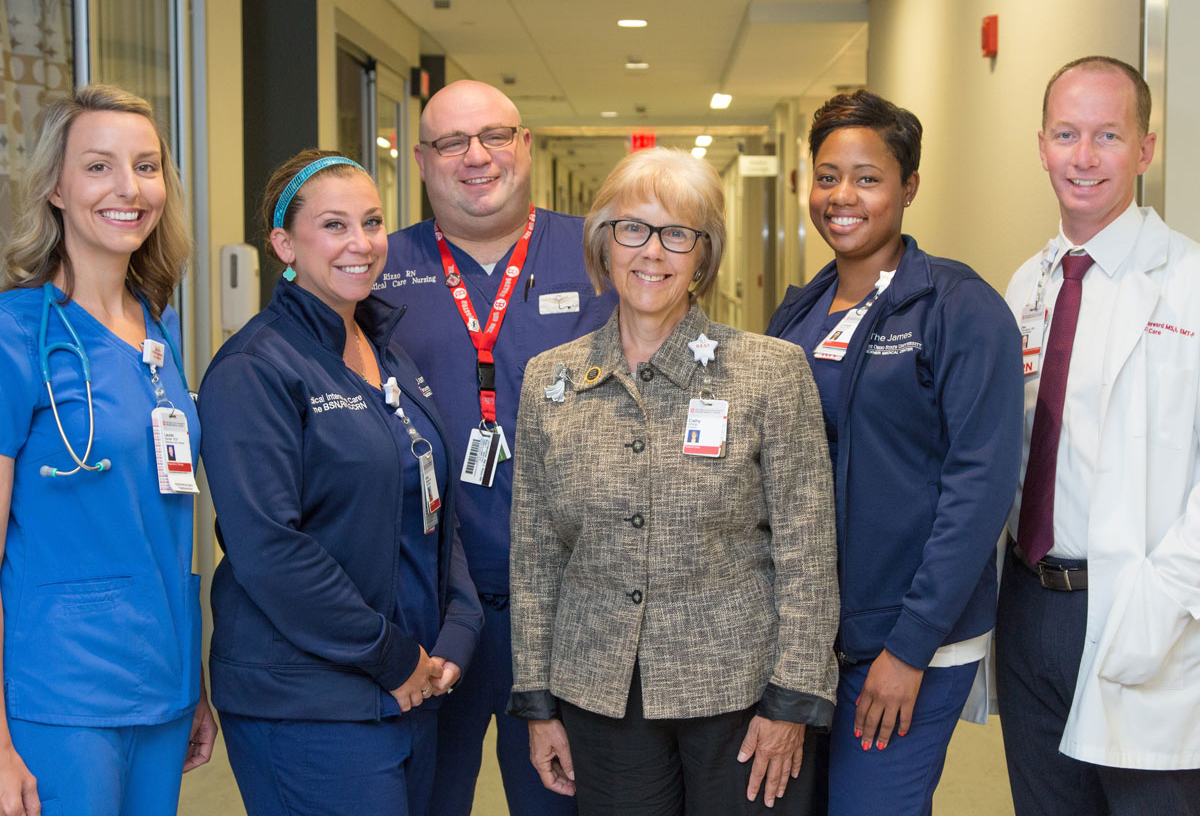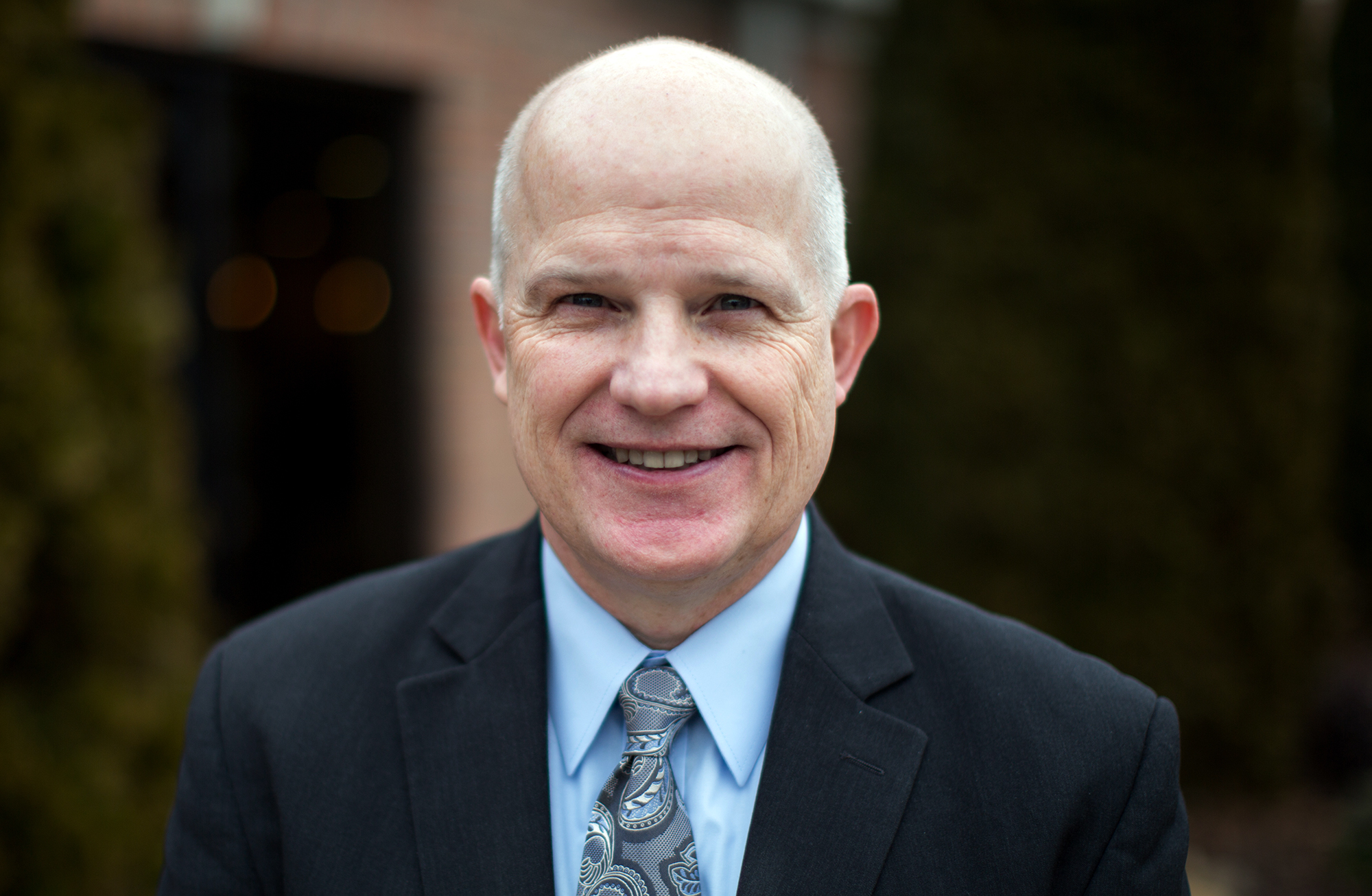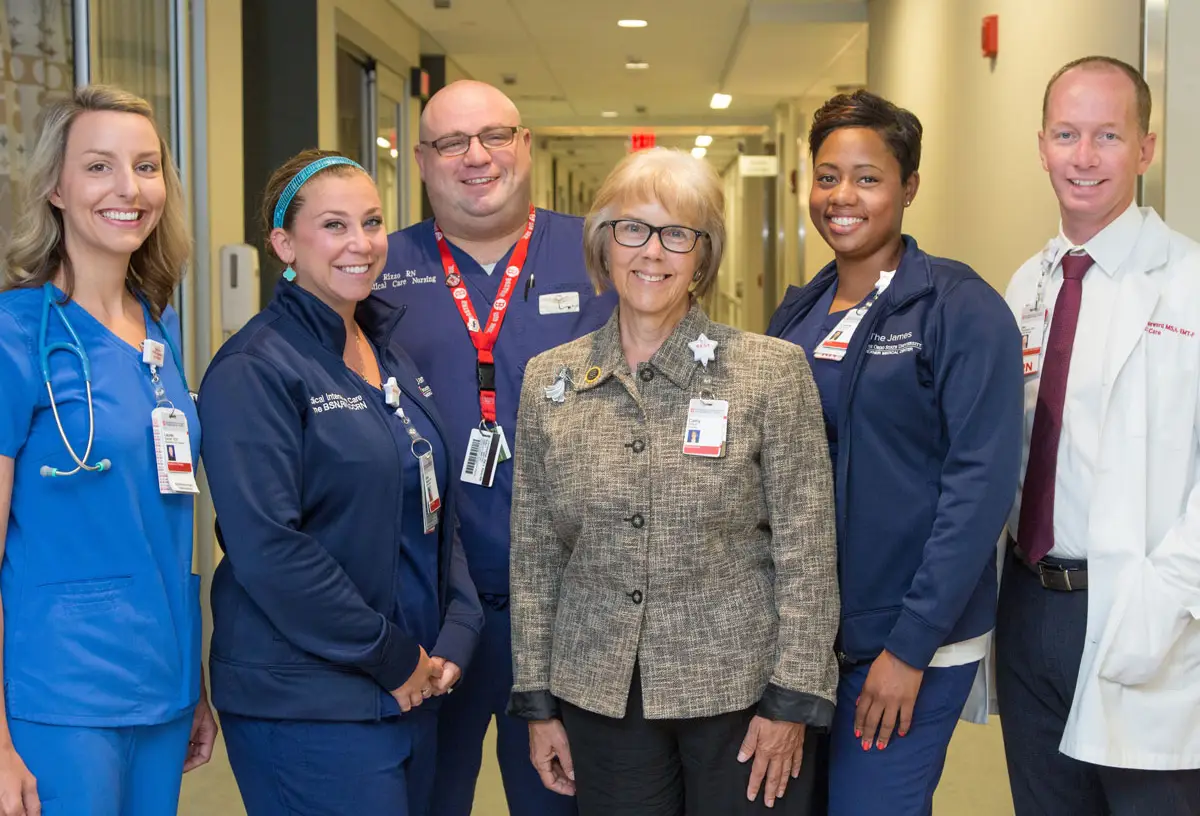COLUMBUS, Ohio (BP) — Talk to hospital chaplains for long about what they do, and they will eventually mention a regularly repeated phrase: “ministry of presence.” It is the simple idea that the most important element of their work is to be present during the toughest moments.
Cathy Disher, third from the right, is a Southern Baptist who serves as a chaplain at the cancer treatment center at Ohio State University called The James. During the recent COVID-19 outbreak, Disher, like so many other chaplains have been serving on the front lines of the pandemic alongside medical staff. Social distancing restrictions have forced chaplains to find creative ways to minister.

As the COVID-19 pandemic has spread worldwide, many hospital chaplains have needed to find new ways to provide a ministry of presence when families can no longer be with their loved ones in person.
Cathy Disher, who serves as a Southern Baptist chaplain at a cancer treatment center at Ohio State University called The James, experienced this firsthand last week when one of her hospital’s COVID-19 patients was dying.
The patient’s wife and kids couldn’t be at his bedside, so Disher called the family to pray with them. Later, Disher said, the nurses were able to connect with the family through FaceTime so they could see their husband and father.
“They were the only ones who had permission to do that sort of intervention,” Disher said. “It gave the family a small window at a distance just to see him and express to him their love and care for him.”
Southern Baptists have endorsed 684 healthcare chaplains serving throughout North America. Some of them serve on the frontlines of the COVID-19 pandemic, but most of them are learning to practice their “ministry of presence” in new ways to stop the spread of the outbreak.
Last weekend, Bari Weiss of The New York Times wrote this about medical chaplains serving in New York City during the current crisis: “Few run toward the dying. Even fewer run toward the contagious. But chaplains do. They ministered to the sick before this pandemic turned their hospitals into war zones. And they will do so after this plague subsides, whenever that day comes.”
Like Disher, many Southern Baptist chaplains are providing the critical missing link of care between patients and families who must remain physically distant from one another. Some are using technological tools, like FaceTime and Zoom, to connect with patients and to help families reach out to their loved ones.
Tim Kinnersley, who serves as the lead chaplain at Northside Cherokee Hospital in Canton, Ga., recently used FaceTime to connect a patient with his family as he neared death. Though the man was a cancer patient and not a COVID-19 patient, visits had been limited by the hospital because of the epidemic. Kinnersley said the family was able to be with the patient the next day when he died.
Brent Bond is the senior director of chaplaincy at the North American Mission Board (NAMB). He served as a trauma, acute care and oncology chaplain for 14 years before joining NAMB’s chaplaincy staff.

Brent Bond, the senior director of chaplaincy at the North American Mission Board (NAMB), mentioned a number of studies that show how spiritual care plays a significant role in improving the physical outcomes of patients. Chaplains, Bond said, provide hope as they help patients understand God’s active role in their situation.
The significance of this care also extends to the families served by chaplains while patients are in the hospital.
“One of the things with any kind of crisis or trauma is close proximity and knowledge,” said Bond, who served as a trauma, acute care and oncology chaplain for 14 years. “If you can’t be physically close to somebody, an illness will create a level of anxiety, so chaplains are often the liaison between the family, the patient and the medical staff. The chaplain can build that bridge until the family can be there. They can assist with letting the family know that their loved ones are getting the care they need.”
Bond noted that chaplains currently have several critical roles. Not only are they serving patients and their families, they’re also ministering to the medical staff, who are often overworked and emotionally spent.
“A lot of the focus goes to the patients and their families,” Bond said. “But the medical staff — the burnout, the compassion fatigue, the empathy fatigue — this is another role that our chaplains usually fill in a healthcare setting, and it’s going to be unique. I know chaplains have set up chaplaincy hotlines and set hours, for those chaplains who are still reporting to the hospitals, where staff can come and talk to them.”
Guillermo Escalona, the director of pastoral care at the Miami Cancer Institute at Baptist Health South Florida, said the COVID-19 crisis is humbling and an opportunity for chaplains.
“It’s humbling because none of us have ever seen anything like this that has had the capacity to bring so many things to a stop,” said Escalona, pastor of the Southern Baptist Coral Villa Baptist Church in Miami. “It’s also such a challenging opportunity to serve God and people. It heightens our awareness of how much we need one another and how vitally important the presence of God and the spiritual life is.”
During the course of their ministry, chaplains commonly find themselves answering spiritual questions as they arise, which often leads to opportunities for evangelism.
“Since this has begun, among those I have been able to speak with, there seems to have been an increase in people thinking about their mortality and ‘Is there life after this?’ and, if so, ‘What is it?'” Kinnersley said.
Bond asked Southern Baptists to pray that God would give chaplains the ability to “have wisdom, to have ears to hear what God is doing in this person’s life so they can share an appropriate word and offer hope in a very short time.”
Tobin Perry is a writer in Evansville, Indiana.
This article was originally published by Baptist Press at bpnews.net

